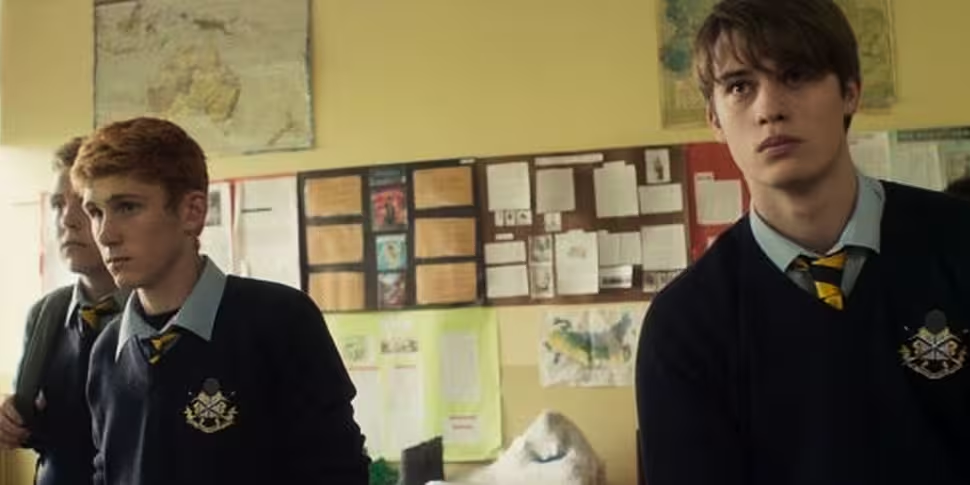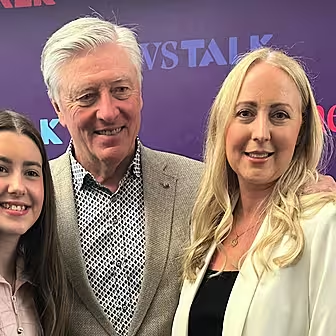After making a splash with the warmly received The Stag, John Butler’s teen comedy-drama follow-up fares particularly poorly when compared to other recent efforts that have evoked Irish youth far better than Handsome Devil.
Make no mistake, it is a fine film, buoyed by engaging performances and enough of a kick to convert a try. But treading similar ground to both Sing Street and A Date for Mad Mary, two significantly better films that explore what it means to be young, musical, or gay in Ireland, Handsome Devil is left lingering in cinematic purgatory.
The fault lies squarely with Butler; exploring his own past as a young gay man in a rugby school to tell a tale of friendship against the odds, his script creates characters so paper thin and frustratingly underdeveloped that it’s hard to find the worthiness he was aiming for.
Fionn O’Shea stars as Ned, a 16-year-old boy sequestered in a south Dublin boarding school by his father (Ardal O’Hanlon) and stepmother (Amy Huberman), who smokes more cigarettes than she has lines. Tormented by his classmates who interpret his otherness as homosexuality, he dreams of being expelled, despite his miscreancy only stretching to pilfering song lyrics for his English class essays.
Change comes in the arrival of two men at the school; Ned is forced to share a room with Conor (Nicolas Galitzine, suitably handsome), relocated after punching his way out of his last school, immediately attracting the attention of the rugby jocks and the disdain of Ned. Meanwhile, Dan Sherry (Andrew Scott, with a performance so angry he presumably ripped off the leather patches from his ‘English Teacher Starter Park’ blazer) challenges Fionn to find his inner voice, reminding him not write off his new roommate before even getting to know him.
There follows a series of misadventures, as the boys slowly warm to each other, develop a friendship and slowly come to terms with their own identities, as well as how that impacts their friendship. Along the way, Mr Sherry pushes them to explore their musical sides and compete in a talent show, rubbing rugby coach Pascal (Moe Dunford) the wrong way as he sees a chance for the senior team to go all the way.
The problem with Handsome Devil is how underdeveloped everything about it feels; the fine performances of its two young leads, of which O’Regan does the heavier lifting, are hampered by characters defined almost entirely by rote understandings of what is a jock and what is a nerd.
Ned, particularly, is disappointing, his homosexuality nothing more than a few 90s band posters on his wall and a penchant for dying his hair. His purported rebellious streak never materialises and despite being a hormone-addled teenager, so disinterested is he in any of the hundreds of men around him that he’s practically asexual. While the characterisation eschews the stereotypes typically associated with young gay men, that’s not to the film’s benefit; it would have been a far braver narrative choice to have a lisping, mincing, self-identifying queer unashamedly and fearlessly figuring out who he is when push comes to shove rather than a sexless, straight-sounding gay who just likes vinyl.
Clumsily framed around Ned writing an essay for a national competition, the action comes to a head with a rugby final, the knock-on effects of which feel largely squeezed in as the film races towards a happy ending. It gets better, the film tells us. If only it was better.
Verdict: Handsome Devil seems like it’s still warming up for the game, and is best enjoyed as a substitute for other stories better told.
Handsome Devil (15A/95mins) is released nationwide on April 21st.









